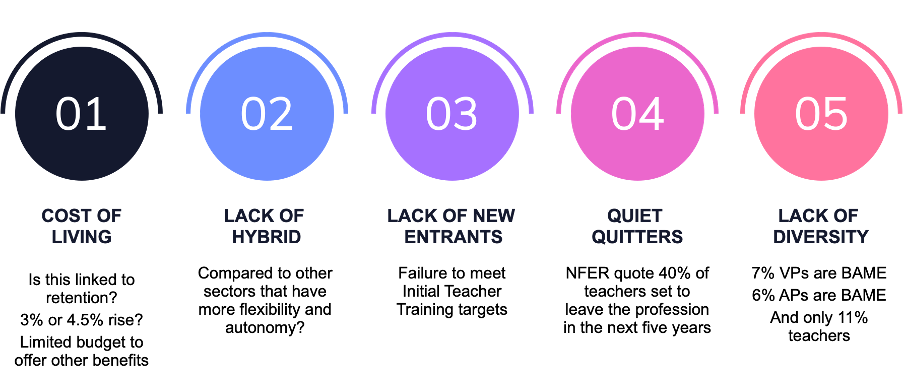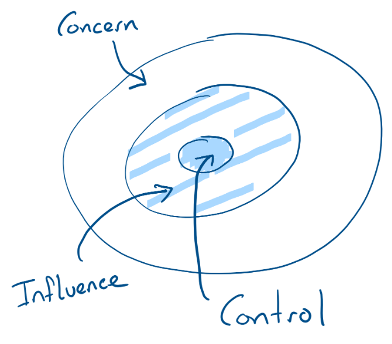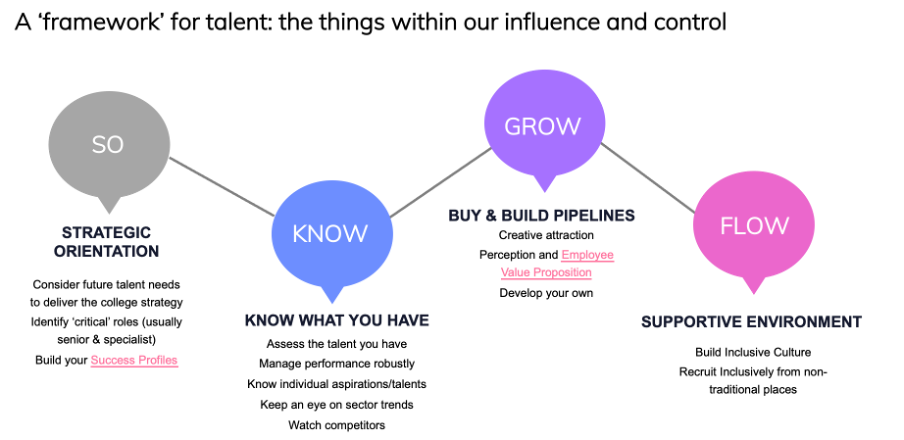Is staff turnover inevitable in the current climate? Perhaps not…
Back
It’s people that power education. They make a college. And for a long period, sixth form colleges happily bucked the recruitment and retention trends tormenting the wider education sector. The signs are that those halcyon days may be coming to an end. The sector looks set for a bumpy time. TES reports 93% higher adverts this academic year than 20-21, 37% higher vacancies and ITT for 2023/24 way below DFE targets, even with bursaries available in priority subjects. Do you recognise some of the trends below?

Sector trends
So far, so depressing, and some of this we cannot control… It can be easy to write off turnover as inevitable, but before we do, let’s briefly turn our attention to what leaders might just be able to control.
Stephen Covey’s Circle of Influence and Control model has some useful application when thinking about how we recruit and retain talent sustainably, and most particularly when facing change and challenge. Covey’s circle of concern contains all those things that affect or concern us – in this case about staffing - and spending energy there is reactive and negative and can lead to feelings of helplessness and stress. The key, according to Covey, is determining which of these concerns are inside and which outside of our circle of control or circle of influence.
 The circle of influence is more proactive, has more positive energy and ‘zeros in’ on the things we can change, and do something about.
The circle of influence is more proactive, has more positive energy and ‘zeros in’ on the things we can change, and do something about.
With that in mind, it would make sense in a context of high concern and (perhaps) low control for colleges to scrutinise their existing talent strategy (or consider creating one), identifying where influence can be leveraged and even considering where control might have been lost, but could be recovered. Below is a starting point.
 Credit: New Street Consulting Group
Credit: New Street Consulting Group
Credit: New Street Consulting Group
At SFCA’s recent principal symposium on talent management, individual colleges considered applying this framework as a way to deepen their influence and control. There were multiple examples of existing good practice cited in each area of the framework, from adapting recruitment success profiles to flexible working. What seemed to particularly resonate was the value of bringing this together as part of a whole college “SO, KNOW, GROW, FLOW” talent framework, building an approach that is more than the sum of its parts.
Look out for examples in the blog over the coming weeks to see how colleagues are innovating and developing their circle of influence in the “SO” and “FLOW” zones in particular.
Deborah Perry is director of programmes at SFCA.

